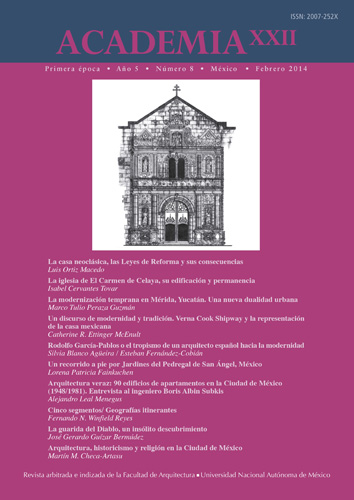La modernización temprana en Mérida, Yucatán. Una nueva dualidad urbana
Contenido principal del artículo
Resumen
La modernidad temprana en Yucatán, acaecida a mediados del siglo XX, generó un desarrollo importante de Mérida, su ciudad capital, gracias al cambio del modelo de desarrollo que prevaleció durante las décadas precedentes en la región, basado en el antiguo cultivo y procesamiento del henequén. La diversificación de las actividades económicas propiciada por la industrialización del país, a partir del régimen de Miguel Alemán, fomentó en esta ciudad un nuevo concepto de desarrollo basado en el comercio y los servicios de diferente índole que le llevó a impulsar el desarrollo de la zona sureste del país. Las afectaciones que sufrió la ciudad fueron muchas, pero particularmente importante fue el explosivo crecimiento de su periferia y la consolidación de su centro histórico como polo centralizador de la economía urbana. Fenómenos que inauguraron un nuevo modelo de desarrollo que, no obstante de afectar el patrimonio de su centro histórico, también reordenó y potenció los servicios y la infraestructura de su nueva periferia.
Descargas
Los datos de descargas todavía no están disponibles.
Detalles del artículo
Cómo citar
Peraza Guzmán, M. T. (2015). La modernización temprana en Mérida, Yucatán. Una nueva dualidad urbana. Academia XXII, 5(8). https://doi.org/10.22201/fa.2007252Xp.2014.8.47601

